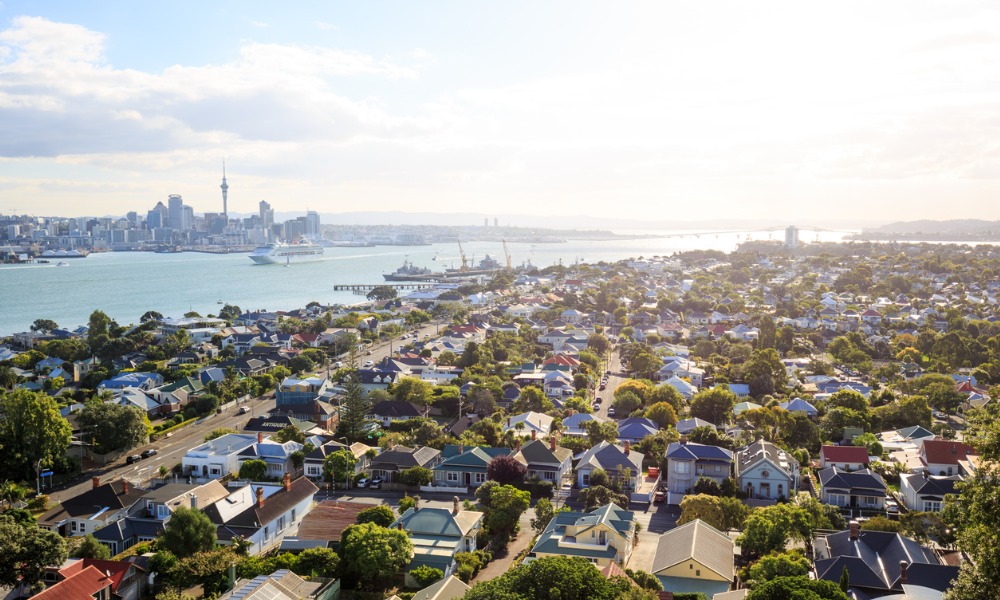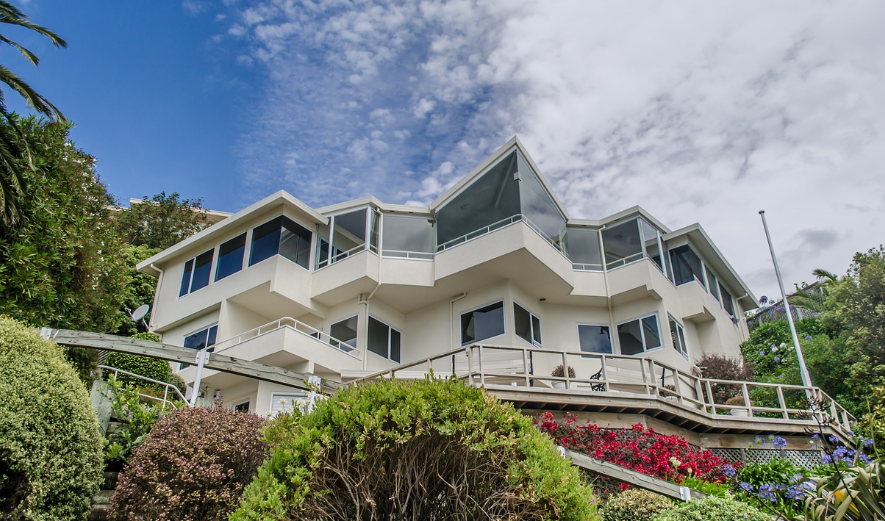New Zealand is a great choice for property investment and residence. But what if you’re a non-resident? Can you buy property in New Zealand? Short answer: it depends

Updated 23 May 2024
Many people around the globe view New Zealand as a great place to reside or invest in. Wealthy real estate buyers outside the country are eyeing NZ properties due to its investor-friendly tax system. However, the prohibition of buying property in New Zealand for non-residents has created a downward trend in investors’ interest. The demand saw a sharp decline as government restrictions were implemented.
For interested parties, it is important to know that overseas buyers are not totally banned from purchasing property in Auckland or in Christchurch, for example. New Zealand authorities still allow foreign investors to buy houses and properties under certain conditions. In this article, NZ Adviser will discuss this partial ban and explain how foreigners can buy residential properties in New Zealand.
Eligibility criteria for buying property in New Zealand for non-residents
If you are planning to buy property in New Zealand as a non-resident, it’s important to know your eligibility as a buyer whether you are a Kiwi or a foreigner. Let us explore the criteria for both types below:
Can I buy a house in New Zealand if I am not a resident?
If you are a citizen of New Zealand, you don’t need to worry about any restrictions. It does not matter if you are physically present in the country or overseas. If you can prove your citizenship, you can be either a resident or non-resident in New Zealand and buy any type of property as mandated by law.

A beautiful home in New Zealand surrounded by flowery shrubs and trees under a cloudy sky
Foreign buyers who are allowed to buy property in NZ
Non-residents can buy a house in New Zealand but with some prohibitions. In 2018, the Overseas Investment Amendment Act was implemented by the New Zealand government. This law introduced partial restrictions for non-residents buying property in New Zealand. As such, they can only purchase certain types of property in the country once the following eligibility criteria are met:
- a foreigner with New Zealand residence class visa and ordinarily resident in New Zealand
- an Australian or Singaporean citizen wanting to buy a residential or lifestyle type of property
- an Australian or Singaporean citizen and ordinarily resident in New Zealand, wanting to buy a residential and otherwise sensitive type of property
- an Australian or Singaporean permanent resident and ordinarily resident in New Zealand, wanting to buy a residential or lifestyle type of property
Due to existing free-trade agreements that New Zealand has with Australia and Singapore, nationals from either country are specified in the eligibility criteria.
Foreign buyers who need consent to buy property in NZ
If you do not qualify for any of the criteria above, you can be still eligible to buy property or construct a house in New Zealand. However, you need to get consent from the Overseas Investment Office (OIO). Here are the conditions before you can obtain OIO’s consent:
- if you have a New Zealand residence class visa but are not yet ordinarily resident
- if you are an Australian or Singaporean permanent resident but are not yet ordinarily resident
- if you are an Australian or Singaporean citizen but are not yet ordinarily resident, and you want to buy land that is ‘residential and otherwise sensitive’
Next step after getting the required consent from the OIO
If OIO grants the consent, every person named in the consent should comply with the following requirements:
- reside in the property and make it their primary residence (within 3 months of being the owner of the property or within 3 months after the house being built on the land is completed, all concerned parties should move in and live in said property or house)
- be present in New Zealand for at least 183 days in each 12-month period after consent is granted
- continue to hold a New Zealand residence class visa or continue to be an Australian or Singaporean citizen or permanent resident
If the requirements above are not met, you can be penalised and may be directed to sell the land or property. Nevertheless, these prerequisites will not apply once you become ordinarily resident in New Zealand or become an NZ citizen.
What if you bought property without consent from OIO?
Inform the corresponding government body right away if you are a foreign buyer who first needs consent to buy property in NZ yet did not apply for one. Such might happen under these situations:
- the legal advice given to you was incorrect
- you did not get pre-approval after winning at an auction
After informing, you can then apply for consent. A retrospective consent from the OIO takes place instead of the usual. However, you may have to pay a fine of $10,000 or more plus the mandated application fee once the OIO grants this consent.
Foreign buyers who are not allowed to buy property in NZ
As stated above, the Overseas Investment Amendment Act has placed a partial ban on foreign ownership of land in New Zealand. If you fall under these categories, you are banned from buying or building a home in NZ:
- if you are an overseas person with a temporary, limited, interim or transit visa (e.g., student, work, or visitor visa)
- If you are an overseas person without any visa
Who are considered ordinarily resident in New Zealand?
Knowing whether you are ordinarily resident is necessary to identify if you can buy property in New Zealand or not. To be considered an ordinarily resident in New Zealand, you must:
- have a residence class visa
- have lived in New Zealand for at least the last 12 months
- have been physically present in New Zealand for at least 183 days of the last 12 months, and
- be a tax resident of New Zealand
For citizens and permanent residents of Australia, you can apply for an Australian Resident Visa on arrival at the New Zealand border. On the other hand, for citizens and permanent residents of Singapore, you can apply for a Residence Visa. Check the New Zealand immigration website for the various types of residence visas available for citizens and permanent residents of Singapore.
All information stated above is from the Toitū Te Whenua Land Information New Zealand’s (LINZ)’s website.
Types of land that foreigners can buy
There are many types of land stated on NZ’s District Valuation Roll. These include:
Residential land
This can be a house that is already put up on a location or a parcel of land where a house can be constructed. Residential properties are mostly found in populous areas such as cities, towns, and districts.
Lifestyle land
This type of property is typically located in rural areas. You can spot lifestyle properties or lifestyle blocks in the countryside with cities or towns nearby. Outside NZ, lifestyle blocks are also known as small holdings or hobby farms.
Sensitive land
The District Valuation Roll identifies sensitive land as any land that is categorised as the two above: residential land and lifestyle land.
Land is also categorised based on a body of water or any area next to it. For example, a sensitive land may be identified as such if it is next to a conservation area, a beach or river, or if it is on an island.
A piece of land can also be considered sensitive based on its type and size. To find out more about how to determine if a land is considered sensitive, check out LINZ’s guide to identify sensitive land.
Impact of foreign ownership on NZ housing market
One of the key considerations regarding foreign ownership is the impact on mortgage rates and housing affordability. Critics argue that the ban on foreign ownership of properties did not help the property market’s crisis. In years following the ban, New Zealanders saw an increase in house prices, particularly in major cities like Auckland and in the districts of Selwyn and Waimakariri.
This has led to concerns about housing affordability for residents, especially first time homebuyers. Some argue that foreign investors can drive up prices and offset the affordability problem. Real estate professionals call for the ban on foreign ownership on properties to be reevaluated. Others are skeptical and think that more competition in the property market will only make matters worse.
These opposing views continue to make headlines, opening discussions on whether the government should let foreign investors buy houses without restrictions. However, New Zealand authorities are taking a cautious approach on the matter.
Watch this to know more about the ongoing talks between government officials and political parties on lifting the foreign ownership ban:
The future of buying property in New Zealand for non-residents
May it be total or partial, the issue of creating prohibitions in buying property in New Zealand for non-residents is complex. Some are pushing to lift the ban, saying that the restrictions did not fix anything in NZ’s housing crisis. For others, the restriction was proper. Those who are in favour of the ban advocate that New Zealand homes are for New Zealanders, adding that foreign buyers should not outbid the citizens in property auction rooms.
Nonetheless, it is difficult to say if the impact of the ban on the NZ housing market is positive or not. Lawmakers and politicians are still trying to strike a balance between the two groups mentioned above.
The pros and cons of allowing foreign ownership of NZ properties remain a subject of an ongoing debate until clearer legislative measures are made.
What do you think about the restrictions on non-residents buying property in New Zealand? Is it helping or hurting the housing market? Let us know in the comments



